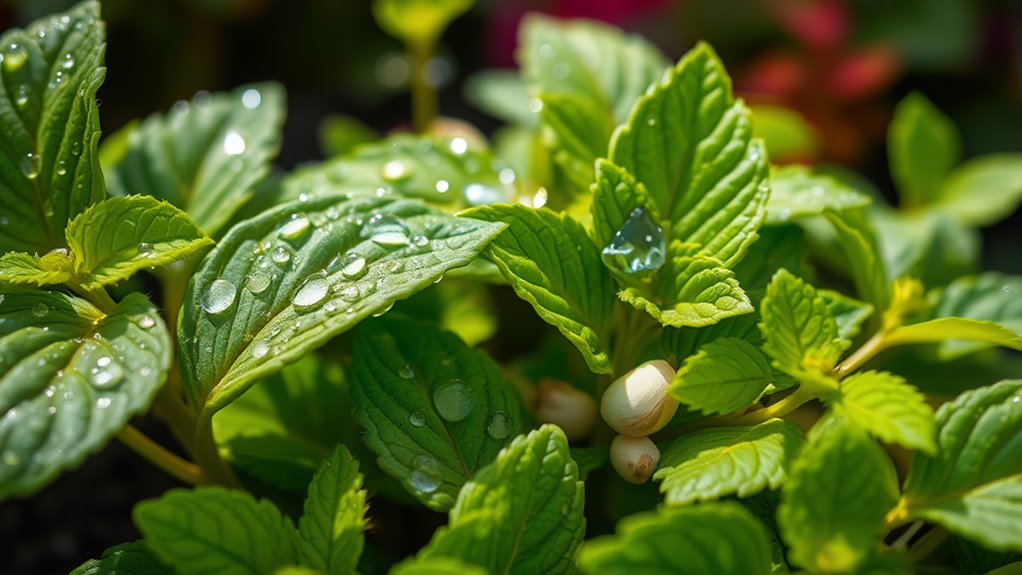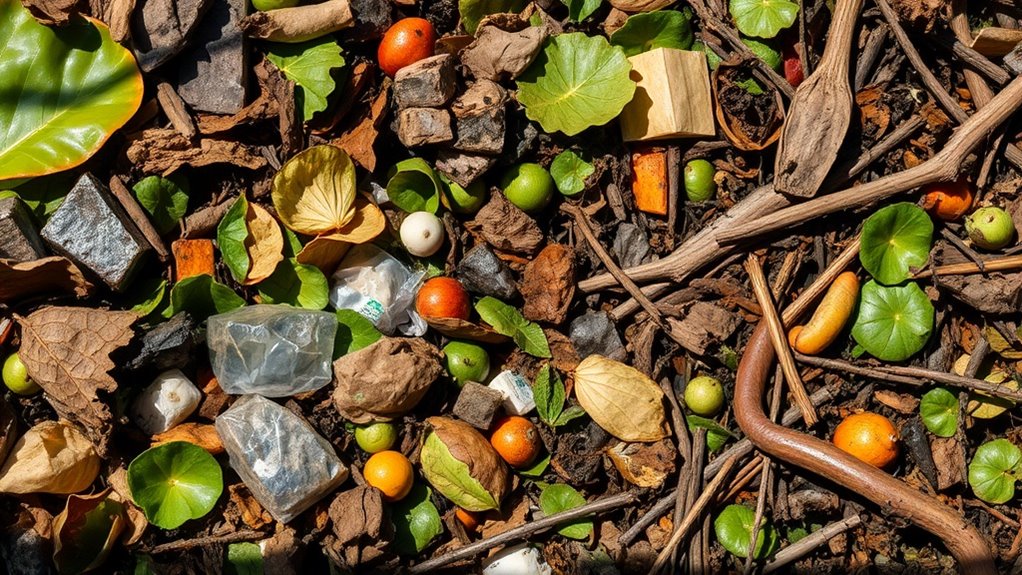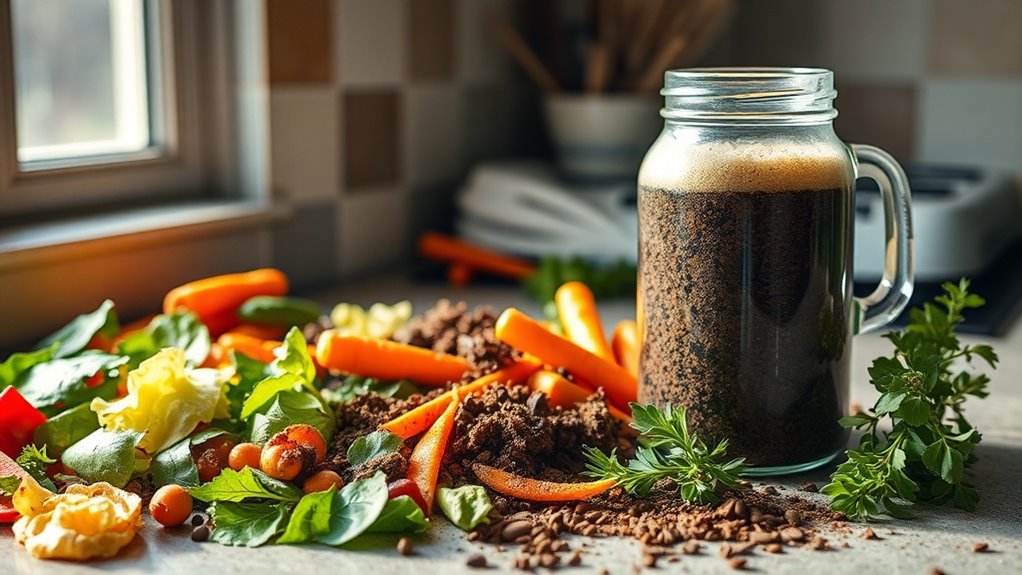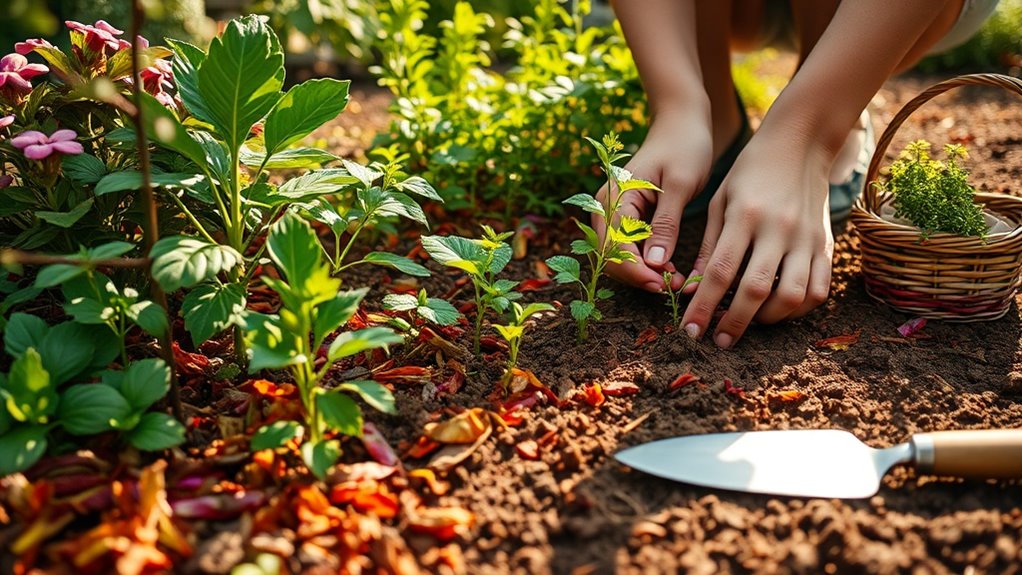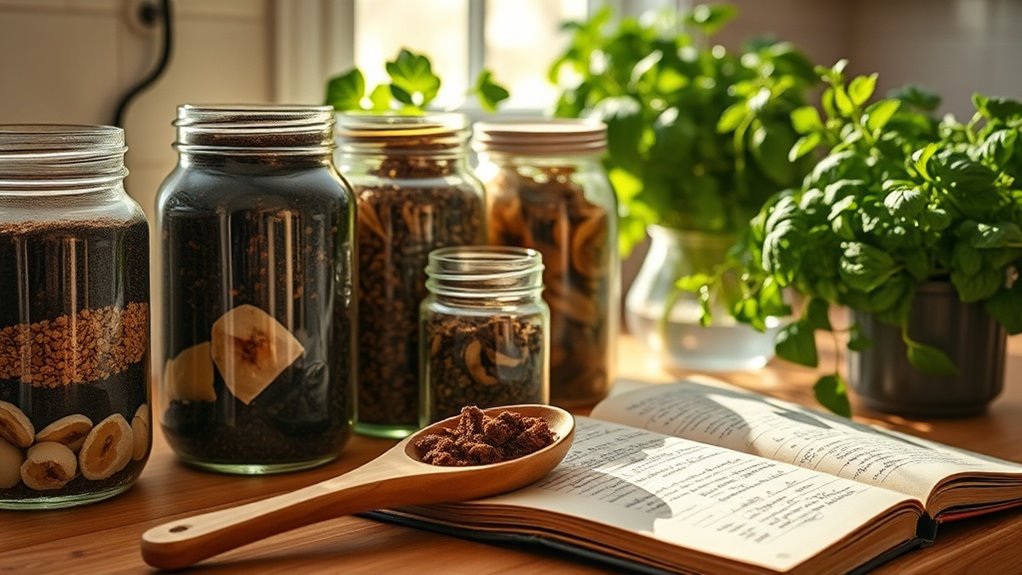Use These Natural Items to Keep Aphids Off Your Plants
Aphids can invade your garden like an army, wreaking havoc on your beloved plants. But don’t worry; you’ve got plenty of natural weapons at your disposal. From neem oil to companion planting, these natural solutions can effectively keep these pests at bay. Want to learn how each method works and find the best approach for your garden? Let’s explore the most effective strategies to protect your plants.
Key Takeaways
- Mix two tablespoons of neem oil with a gallon of water and spray on affected plants to disrupt aphid feeding and reproduction.
- Create a garlic spray by blending garlic cloves with water, steeping overnight, straining, and adding soap to repel aphids effectively.
- Sprinkle diatomaceous earth around plants to create a physical barrier that damages aphid exoskeletons, leading to dehydration and death.
- Practice companion planting by placing marigolds, garlic, or nasturtiums near vegetables to attract beneficial insects and deter aphids.
- Use a simple soap and water solution, spraying it on plants to disrupt aphids’ protective coating and promote a healthier garden ecosystem.
Neem Oil: A Natural Insecticide
Neem oil is a powerful natural insecticide that can effectively keep aphids at bay.
To use it for aphid natural control, mix two tablespoons of neem oil with a gallon of water and add a few drops of liquid soap to help emulsify the solution.
Spray this mixture on affected plants, focusing on the undersides of leaves where aphids often hide.
It disrupts their feeding and reproduction, making it a great option for organic gardening. Additionally, neem oil acts as a natural pest deterrent, providing protection against other harmful insects.
Reapply every seven to fourteen days, especially after rain.
With consistent use, you can protect your plants and promote a healthy garden ecosystem.
Garlic Spray: A Strong Repellent
Garlic spray serves as a potent repellent against aphids, harnessing the natural properties of garlic to deter these pests from your plants.
To make your own, blend a few cloves of garlic with water and let the mixture steep overnight.
Strain it and add a few drops of liquid soap to help the solution adhere to leaves.
Spray this concoction directly on affected plants, focusing on the undersides of leaves where aphids often hide. Reapply every few days or after rain.
This natural remedy not only repels aphids but also promotes a healthier garden ecosystem, making it a win-win for your plants. Additionally, using garlic spray can help maintain a healthy garden ecosystem, which is essential for the overall health of your plants.
Diatomaceous Earth: A Physical Barrier
After employing garlic spray to keep aphids at bay, consider using diatomaceous earth as another effective strategy.
This natural powder consists of tiny fossilized algae, which creates a physical barrier against pests.
Simply sprinkle a thin layer of diatomaceous earth around your plants, focusing on the soil and leaves.
When aphids crawl over it, the sharp particles damage their exoskeletons, leading to dehydration and death.
Make sure to reapply after rain or watering, as moisture can diminish its effectiveness.
Using diatomaceous earth not only helps control aphids but also protects your plants without harmful chemicals. Additionally, it serves as a sustainable gardening option by minimizing reliance on synthetic pesticides.
Companion Planting: Utilizing Nature’s Allies
Companion planting is a powerful strategy that harnesses the natural relationships between plants to deter aphids and other pests.
By pairing specific plants, you can create a balanced ecosystem in your garden.
For instance, planting marigolds near vegetables attracts beneficial insects like ladybugs, which feed on aphids.
Similarly, interspersing garlic or chives with your crops can repel aphids due to their strong scent.
Consider planting nasturtiums as well; they act as a trap crop, luring aphids away from your main plants.
Additionally, incorporating companion plants like basil can enhance the flavor of tomatoes and improve their resistance to pests.
Experiment with these combinations to enhance your garden’s defenses naturally, promoting health and vitality for all your plants.
Soap and Water Solution: A Simple Deterrent
A simple yet effective method to keep aphids at bay is using a soap and water solution.
Mix one to two tablespoons of mild liquid soap with a quart of water in a spray bottle.
Make sure to choose a soap that doesn’t contain additives or fragrances, as these can harm your plants.
Spray the solution directly onto the affected areas of your plants, targeting both the tops and undersides of leaves.
Repeat this application every few days until you notice a decrease in aphid activity.
This method disrupts their protective coating, making it easier for them to be washed away. Additionally, using natural ingredients in your pest control efforts can promote a healthier garden ecosystem.

